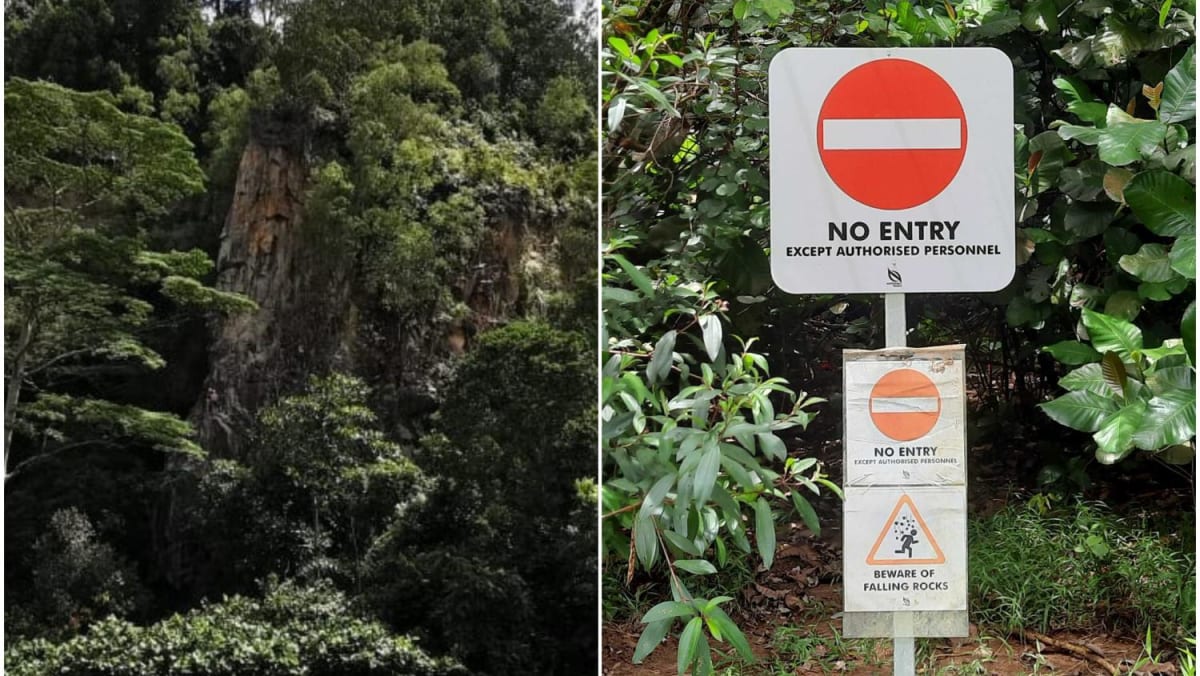Climbers frustrated at being barred from Dairy Farm rock walls; NParks says site is dangerous
CLIMBERS: NPARKS’ STUDY FLAWED
This study, according to RCC representative Mr Cheang, was flawed and lacked input from climbers.
“They used a very engineering perspective to look at the risk management plan in Dairy Farm. (They) did a risk assessment of different areas, but they are not really climbers so they don’t really understand what climbers do in order to mitigate the risks,” he said.
“Rock climbing has always been practised in the quarry. Where there is rock there will be rockfall. This is the nature of climbing on rock and any attempt to reduce or mitigate the risks to zero is futile, as nature is a force that we cannot completely control.”
What NParks has done “clearly defies the spirit of adventure and outdoor sports”, he added.
Climbers also noted that the prohibition might inadvertently lead to people climbing under the radar and failing to share information about possible hazards for fear of being penalised.
One such climber who was seen in the area when CNA visited said that Dairy Farm had “sentimental value” to him as he was one of its pioneer climbers.
The climber, who declined to give his name, said he voluntarily checks on the bolts and anchors at the rock walls and changes them if necessary to ensure they are in good condition. Asked for his views on Dairy Farm Quarry as a climbing site, the man said that it was a good place to expose climbers to climbing outdoors before they progressed to crags overseas.
Those who climb at Dairy Farm Quarry need to know what kind of rock surface they are dealing with, he added. Granite has a smoother surface with angled cracks, so there is a lack of friction for smearing – a move where you press your shoe to the surface of the rock to ascend.
“During the rainy season after heavy rain, we have to see the changes with soil erosion and if the place is good. After a prolonged dry period, if we see falling sand and we know to be careful, it helps us make better decisions. Climb on the safe side, don’t stay on a route with loose rocks,” he said.
The bottom line is that climbers ought to make their own assessments and be responsible for their own actions, he added.
ACCIDENTS LARGELY DUE TO HUMAN ERROR: RCC
Mr Cheang, the founder of rock climbing guide service company Qxadventures, said that while there have been accidents at Dairy Farm Quarry, the majority were due to human error, attributable to the lack of good courses and instructors for climbers.
“Without an organisation that cares for and advocates for the interests of outdoor rock climbers, climbers going outside have largely been left to their own devices and subject to the varying quality of mentorship present among their peers,” he said.
Mr Cheang, who started climbing at Dairy Farm Quarry in the early 2000s, recalled an accident directly linked to rockfall after a climber dislodged a loose rock which then hit his belayer, who controls the safety rope for a climber. The climber in this case did not have enough knowledge to recognise and avoid the loose rocks, he said.
Some of RCC’s proposals include frequently checking the bolts and anchors at the climbing sites to ensure their integrity, having climbers sign a liability form that informs them of the risks involved, and having an evacuation plan in the case of an accident.
But NParks has maintained its stance and Mr Cheang continues to engage the authority.
“I’m sure we will find some ways around it and we can keep it open for people to enjoy. We don’t need to just say, okay it’s closed, no climbing for everyone,” said Mr Cheang.
“It’s just an open space that has a great community and vibe. Singapore has so many indoor climbing gyms, it’s just not the same to be outside.”
For all the latest Sports News Click Here

